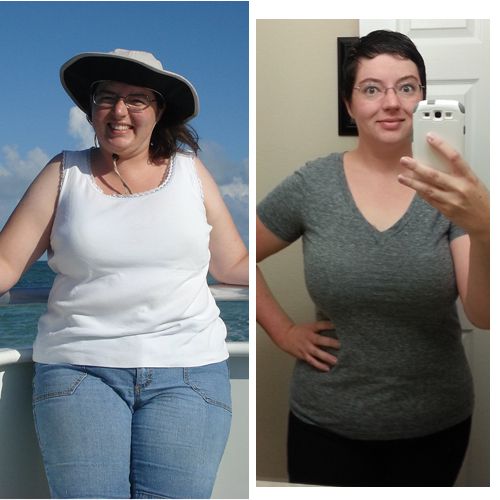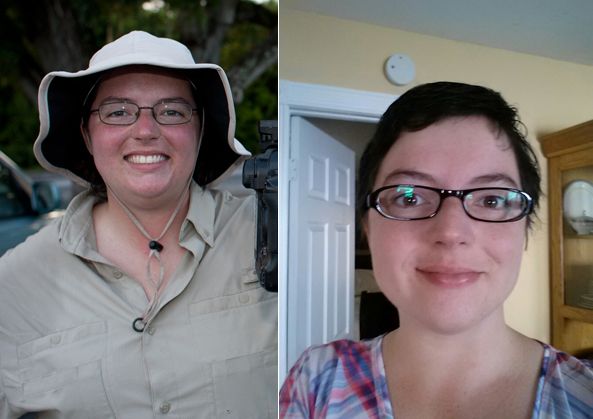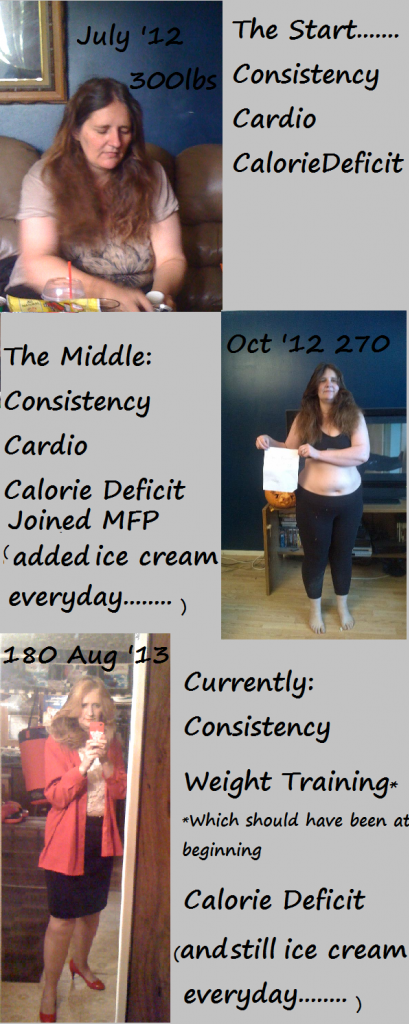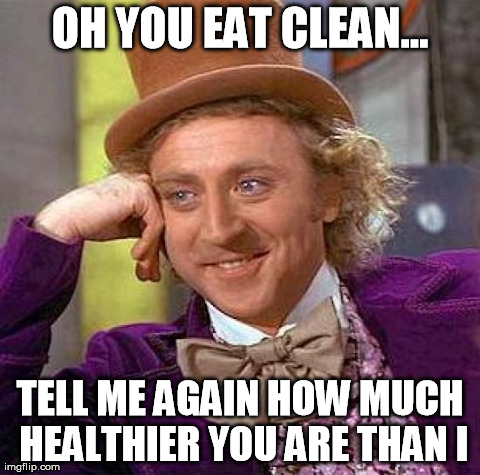"Unclean" IIFYM Success Stories and Pics please?
Replies
-

 0
0 -
The thing about eating clean is that it's not just for your weight loss- processed foods contribute to heart disease, diabetes, cancer, bone disease, so much! You can be skinny and still be at risk for all of those things by eating a highly processed, unnatural diet.
I follow IIFYM (well, I try … :laugh:) and eat plenty of processed foods. I just got lab results back. Lipids are beautiful, fasting blood sugar normal, liver and kidney function are great. I'm no spring chicken, either, so it's not the "you're still young" thing.0 -
I lost 30 lbs and managed to put on a decent amount of muscle by just counting total calories and keeping a protein intake of 0.8g/lb.
I eat junk food 2 or 3 times per week.0 -
Blog posts are not science..............not a single source cited in those linksThe thing about eating clean is that it's not just for your weight loss- processed foods contribute to heart disease, diabetes, cancer, bone disease, so much! You can be skinny and still be at risk for all of those things by eating a highly processed, unnatural diet.
Care to back that up with some sort of scientific evidence?
Are you kidding? It's pretty universally known in the science and nutrition world that processed foods contain thousands of chemicals that destroy your body...
http://www.mindbodygreen.com/0-9686/how-processed-foods-are-killing-you-one-bite-at-a-time.html
http://saveourbones.com/12-dangerous-ingredients/
http://www.health.com/health/m/gallery/0,,20588763,00.html
http://m.huffpost.com/ca/entry/3101043/
Don't get me wrong, you can absolutely totally lose weight and be much healthier than you are now, but my thought is if I'm doing all this hard work to lose weight and get healthy, why would I waste it by filling my body with foods it was not designed to eat? I still have a ways to go but the less processed I eat, the better I feel.0 -
The thing about eating clean is that it's not just for your weight loss- processed foods contribute to heart disease, diabetes, cancer, bone disease, so much! You can be skinny and still be at risk for all of those things by eating a highly processed, unnatural diet.
Care to back that up with some sort of scientific evidence?
Are you kidding? It's pretty universally known in the science and nutrition world that processed foods contain thousands of chemicals that destroy your body...
http://www.mindbodygreen.com/0-9686/how-processed-foods-are-killing-you-one-bite-at-a-time.html
http://saveourbones.com/12-dangerous-ingredients/
http://www.health.com/health/m/gallery/0,,20588763,00.html
http://m.huffpost.com/ca/entry/3101043/
Don't get me wrong, you can absolutely totally lose weight and be much healthier than you are now, but my thought is if I'm doing all this hard work to lose weight and get healthy, why would I waste it by filling my body with foods it was not designed to eat? I still have a ways to go but the less processed I eat, the better I feel.
Your links prove nothing... Definitely show nothing that is universally known.0 -



Still a work in progress, but 62 lbs lost eating whatever fits my goals.0 -
Totally did not mean to start a frenzy- but I hate the misconception that just because something is diet or low calories means it is good for us.
I hope nobody feels I am attacking them and I certainly am not anywhere close to perfect with the foods I eat, but I try and am enjoying the benefits of eating better even in just a couple weeks. And sure, I could eat perfectly for the rest of my life and still drop dead at 40. But I'm not missing fast food yet so I'll keep doing what I'm doing and if I get an extra year in life then it was worth it. And if not... Still worth it.0 -
I had never heard of IIFYM before this thread and looks like I'm one that fits in here! LOL. Can't say that I've lost a ton, but I'm a firm believer in something has to be sustainable and fun!0
-
Cupcakes may be addictive, just like cocaine.
A growing body of medical research at leading universities and government laboratories suggests that processed foods and sugary drinks made by the likes of PepsiCo Inc. and Kraft Foods Inc. (KFT) aren’t simply unhealthy. They can hijack the brain in ways that resemble addictions to cocaine, nicotine and other drugs.
“The data is so overwhelming the field has to accept it,” said Nora Volkow, director of the National Institute on Drug Abuse. “We are finding tremendous overlap between drugs in the brain and food in the brain.”
The idea that food may be addictive was barely on scientists’ radar a decade ago. Now the field is heating up. Lab studies have found sugary drinks and fatty foods can produce addictive behavior in animals. Brain scans of obese people and compulsive eaters, meanwhile, reveal disturbances in brain reward circuits similar to those experienced by drug abusers.
Twenty-eight scientific studies and papers on food addiction have been published this year, according to a National Library of Medicine database. As the evidence expands, the science of addiction could become a game changer for the $1 trillion food and beverage industries.
If fatty foods and snacks and drinks sweetened with sugar and high fructose corn syrup are proven to be addictive, food companies may face the most drawn-out consumer safety battle since the anti-smoking movement took on the tobacco industry a generation ago.
‘Fun-for-You’
“This could change the legal landscape,” said Kelly Brownell, director of Yale University’s Rudd Center for Food Policy & Obesity and a proponent of anti-obesity regulation. “People knew for a long time cigarettes were killing people, but it was only later they learned about nicotine and the intentional manipulation of it.”
Food company executives and lobbyists are quick to counter that nothing has been proven, that nothing is wrong with what PepsiCo Chief Executive Officer Indra Nooyi calls “fun-for- you” foods, if eaten in moderation. In fact, the companies say they’re making big strides toward offering consumers a wide range of healthier snacking options. Nooyi, for one, is as well known for calling attention to PepsiCo’s progress offering healthier fare as she is for driving sales.
Coca-Cola Co. (KO), PepsiCo, Northfield, Illinois-based Kraft and Kellogg Co. of Battle Creek, Michigan, declined to grant interviews with their scientists.
No one disputes that obesity is a fast growing global problem. In the U.S., a third of adults and 17 percent of teens and children are obese, and those numbers are increasing. Across the globe, from Latin America, to Europe to Pacific Island nations, obesity rates are also climbing.
Cost to Society
The cost to society is enormous. A 2009 study of 900,000 people, published in The Lancet, found that moderate obesity reduces life expectancy by two to four years, while severe obesity shortens life expectancy by as much as 10 years. Obesity has been shown to boost the risk of heart disease, diabetes, some cancers, osteoarthritis, sleep apnea and stroke, according to the Centers for Disease Control and Prevention. The costs of treating illness associated with obesity were estimated at $147 billion in 2008, according to a 2009 study in Health Affairs.
Sugars and fats, of course, have always been present in the human diet and our bodies are programmed to crave them. What has changed is modern processing that creates food with concentrated levels of sugars, unhealthy fats and refined flour, without redeeming levels of fiber or nutrients, obesity experts said. Consumption of large quantities of those processed foods may be changing the way the brain is wired.
A Lot Like Addiction
Those changes look a lot like addiction to some experts. Addiction “is a loaded term, but there are aspects of the modern diet that can elicit behavior that resembles addiction,” said David Ludwig, a Harvard researcher and director of the New Balance Foundation Obesity Prevention Center at Children’s Hospital Boston. Highly processed foods may cause rapid spikes and declines in blood sugar, increasing cravings, his research has found.
Education, diets and drugs to treat obesity have proven largely ineffective and the new science of obesity may explain why, proponents say. Constant stimulation with tasty, calorie- laden foods may desensitize the brain’s circuitry, leading people to consume greater quantities of junk food to maintain a constant state of pleasure.
In one 2010 study, scientists at Scripps Research Institute in Jupiter, Florida, fed rats an array of fatty and sugary products including Hormel Foods Corp. (HRL) bacon, Sara Lee Corp. (SLE) pound cake, The Cheesecake Factory Inc. (CAKE) cheesecake and Pillsbury Co. Creamy Supreme cake frosting. The study measured activity in regions of the brain involved in registering reward and pleasure through electrodes implanted in the rats.
Binge-Eating Rats
The rats that had access to these foods for one hour a day started binge eating, even when more nutritious food was available all day long. Other groups of rats that had access to the sweets and fatty foods for 18 to 23 hours per day became obese, Paul Kenny, the Scripps scientist heading the study wrote in the journal Nature Neuroscience. The results produced the same brain pattern that occurs with escalating intake of cocaine, he wrote.
“To see food do the same thing was mind-boggling,” Kenny later said in an interview.
Researchers are finding that damage to the brain’s reward centers may occur when people eat excessive quantities of food.
Sweet Rewards
In one 2010 study conducted by researchers at the University of Texas in Austin and the Oregon Research Institute, a nonprofit group that studies human behavior, 26 overweight young women were given magnetic resonance imaging scans as they got sips of a milkshake made with Haagen-Dazs ice cream and Hershey Co. (HSY)’s chocolate syrup.
The same women got repeat MRI scans six months later. Those who had gained weight showed reduced activity in the striatum, a region of the brain that registers reward, when they sipped milkshakes the second time, according to the study results, published last year in the Journal of Neuroscience.
“A career of overeating causes blunted reward receipt, and this is exactly what you see with chronic drug abuse,” said Eric Stice, a researcher at the Oregon Research Institute.
Scientists studying food addiction have had to overcome skepticism, even from their peers. In the late 1990s, NIDA’s Volkow, then a drug addiction researcher at Brookhaven National Laboratory on Long Island, applied for a National Institutes of Health grant to scan obese people to see whether their brain reward centers were affected. Her grant proposal was turned down.
Finding Evidence
“I couldn’t get it funded,” she said in an interview. “The response was, there is no evidence that food produces addictive-like behaviors in the brain.”
Volkow, working with Brookhaven researcher Gene-Jack Wang, cobbled together funding from another government agency to conduct a study using a brain scanning device capable of measuring chemical activity inside the body using radioactive tracers.
Researchers were able to map dopamine receptor levels in the brains of 10 obese volunteers. Dopamine is a chemical produced in the brain that signals reward. Natural boosters of dopamine include exercise and sexual activity, but drugs such as cocaine and heroin also stimulate the chemical in large quantities.
In drug abusers, brain receptors that receive the dopamine signal may become unresponsive with increased drug usage, causing drug abusers to steadily increase their dosage in search of the same high. The Brookhaven study found that the obese people also had lowered levels of dopamine receptors compared with a lean control group.
Addicted to Sugar
The same year, psychologists at Princeton University began studying whether lab rats could become addicted to a 10 percent solution of sugar water, about the same percentage of sugar contained in most soft drinks.
An occasional drink caused no problems for the lab animals. Yet the researchers found dramatic effects when the rats were allowed to drink sugar-water every day. Over time they drank “more and more and more” while eating less of their usual diet, said Nicole Avena, who began the work as a graduate student at Princeton and is now a neuroscientist at the University of Florida.
The animals also showed withdrawal symptoms, including anxiety, shakes and tremors, when the effect of the sugar was blocked with a drug. The scientists, moreover, were able to determine changes in the levels of dopamine in the brain, similar to those seen in animals on addictive drugs.
Similar Behavior
“We consistently found that the changes we were observing in the rats binging on sugar were like what we would see if the animals were addicted to drugs,” said Avena, who for years worked closely with the late Princeton psychologist, Bartley Hoebel, who died this year.
While the animals didn’t become obese on sugar water alone, they became overweight when Avena and her colleagues offered them water sweetened with high-fructose corn syrup.
A 2007 French experiment stunned researchers when it showed that rats prefer water sweetened with saccharine or sugar to hits of cocaine -- exactly the opposite of what existing dogma would have suggested.
“It was a big surprise,” said Serge Ahmed, a neuroscientist who led the research for the French National Research Council at the University of Bordeaux.
Yale’s Brownell helped organize one of the first conferences on food addiction in 2007. Since then, a protégé, Ashley Gearhardt, devised a 25-question survey to help researchers spot people with eating habits that resemble addictive behavior.
Pictures of Milkshakes
She and her colleagues used magnetic resonance imaging to examine brain activity of women scoring high on the survey. Pictures of milkshakes lit up the same brain regions that become hyperactive in alcoholics anticipating a drink, according to results published in the Archives of General Psychiatry in April.
Food addiction research may reinvigorate the search for effective obesity drugs, said Mark Gold, who chairs the psychiatry department at the University of Florida in Gainesville. Gold said the treatments he is working on seek to alter food preferences without suppressing overall appetite.
Developing Treatments
“We are trying to develop treatments that interfere with pathological food preferences,” he said. “Let’s say you are addicted to ice cream, you might come up with a treatment that blocked your interest in ice cream, but doesn’t affect your interest in meat.”
In related work, Shire Plc (SHP), a Dublin-based drugmaker, is testing its Vyvanse hyperactivity drug in patients with binge- eating problems.
Not everyone is convinced. Swansea University psychologist David Benton recently published a 16-page rebuttal to sugar addiction studies. The paper, partly funded by the World Sugar Research Organization, which includes Atlanta-based Coca-Cola, the world’s largest soft-drink maker, argues that food doesn’t produce the same kind of intense dopamine release seen with drugs and that blocking certain brain receptors doesn’t produce withdrawal symptoms in binge-eaters as it does in drug abusers.
Industry Response
What’s still unknown is whether the science of food addition has begun to change the thinking among food and beverage companies, which are, after all, primarily in the business of selling the Doritos, Twinkies and other fare people crave.
About 80 percent of Purchase, New York-based PepsiCo’s marketing budget, for instance, is directed toward pushing salty snacks and sodas. Although companies are quick to point to their healthier offerings, their top executives are constantly called upon to reassure investors those sales of snack foods and sodas are showing steady growth.
“We want to see profit growth and revenue growth,” said Tim Hoyle, director of research at Haverford Trust Co. in Radnor, Pennsylvania, an investor in PepsiCo, the world’s largest snack-food maker. “The health foods are good for headlines but when it gets down to it, the growth drivers are the comfort foods, the Tostitos and the Pepsi-Cola.”
Little wonder that the food industry is pushing hard on the idea that the best way to get a handle on obesity is through voluntary measures and by offering healthier choices. The same tactic worked for awhile, decades ago, for the tobacco industry, which deflected attention from the health risks and addictive nature of cigarettes with “low tar and nicotine” marketing.
Food industry lobbyists don’t buy that argument -- or even the idea that food addiction may exist. Said Richard Adamson, a pharmacologist and consultant for the American Beverage Association: “I have never heard of anyone robbing a bank to get money to buy a candy bar or ice cream or pop.”
To contact the reporters on this story: Robert Langreth in New York at rlangreth@bloomberg.net; Duane D. Stanford in Atlanta at dstanford2@bloomberg.net0 -
By all means, continue eating your processed foods. Diet yourself to death, but don't say nobody warned you.0
-
Dirty every day, baby! :bigsmile:
 0
0 -
By all means, continue eating your processed foods. Diet yourself to death, but don't say nobody warned you.
Just stop. This thread isn't a debate about IIFYM. Additionally, according to your ticker, you're still substantially overweight yourself. Why not try to learn from people who've had success already instead of lecturing us with copy/pasted blogs that lack any citations to actual scientific studies?0 -
The thing about eating clean is that it's not just for your weight loss- processed foods contribute to heart disease, diabetes, cancer, bone disease, so much! You can be skinny and still be at risk for all of those things by eating a highly processed, unnatural diet.
Care to back that up with some sort of scientific evidence?
Are you kidding? It's pretty universally known in the science and nutrition world that processed foods contain thousands of chemicals that destroy your body...
http://www.mindbodygreen.com/0-9686/how-processed-foods-are-killing-you-one-bite-at-a-time.html
http://saveourbones.com/12-dangerous-ingredients/
http://www.health.com/health/m/gallery/0,,20588763,00.html
http://m.huffpost.com/ca/entry/3101043/
Don't get me wrong, you can absolutely totally lose weight and be much healthier than you are now, but my thought is if I'm doing all this hard work to lose weight and get healthy, why would I waste it by filling my body with foods it was not designed to eat? I still have a ways to go but the less processed I eat, the better I feel.
I didn't read the blogs and articles you shared … tell me, do any of them point to controlled, scientific studies? The thing with most of these conditions, especially cancer, is that there are so many contributing factors (environment, genetics, etc) and it's very difficult to pin one's cancer to a specific cause. Even when we know things are strongly linked, it's not a sure thing. So scientists will look at studies and see a possible correlation … and then the journalists jump on that like they've found THE ANSWER (which they haven't.)
As far as what our bodies are "designed" to eat … the human species has prospered as much as it has because of it's adaptability. When my northern European ancestors turned agrarian (from hunter-gatherer), those who had a mutation allowing them to drink milk thrived because of a more ready source of nutrition in times of poor crops than those who were lactose intolerant. Paleolithic era hominids probably ate whatever was available and those who survived were those who could adapt. We still adapt to the chemicals we eat (and I'm still wondering where the evidence is that the chemicals in processed foods are more harmful than those occurring naturally…)
IIFYM doesn't say eat all the junk you can. It still stresses foods that are nutritiously dense (after all, you can't easily fit your protein macros on nothing but cake and soda … that requires meats, beans, nuts, dairy, etc). It just doesn't demonize any food because it's not "ideal"0 -
I dont really pay attention to IIFYM, but I do eat whatever I what as long as its at my set calorie deficit.0
-
By all means, continue eating your processed foods. Diet yourself to death, but don't say nobody warned you.
 0
0 -
There are a lot of inspiring pictures in this thread.0
-
I eat "unclean" IIFYM and I've lost 22 pounds since December.0
-


I eat quite a bit of 'junk' food.0 -
By all means, continue eating your processed foods. Diet yourself to death, but don't say nobody warned you.

I love this.
How do you know someone eats clean?
Don't worry, they'll f-ing TELL YOU.0 -
By all means, continue eating your processed foods. Diet yourself to death, but don't say nobody warned you.

I imagine this is what that poster is seeing in their head when they think of what others do when they say they eat what they want. 0
0 -
-
Great work and journey10
-
Vjohn04- you are super duper sexy. Just throwing that out there.0
-
By all means, continue eating your processed foods. Diet yourself to death, but don't say nobody warned you.
Oh no, me be scared of this processed food inferno you're predicting for us. 0
0 -
I guess I'll put the pictures here since others are as well:


 0
0 -
 0
0 -
I guess I'll put the pictures here since others are as well:




looking great!!0 -
The thing about eating clean is that it's not just for your weight loss- processed foods contribute to heart disease, diabetes, cancer, bone disease, so much! You can be skinny and still be at risk for all of those things by eating a highly processed, unnatural diet.
your at risk for that anyway. I have yet to see someone eat themeselves into immortality.0 -
I lost 115 lbs since joining mfp, I have been maintain7ng for awhile now, I simply follow calories in calories out. Feel free to look st my profile pics if u want......

 0
0 -
I have yet to see someone eat themeselves into immortality.
LOL. I laughed at this with the strength of 220 Gigglewatts.:drinker:0
This discussion has been closed.
Categories
- All Categories
- 1.4M Health, Wellness and Goals
- 398.2K Introduce Yourself
- 44.7K Getting Started
- 261K Health and Weight Loss
- 176.4K Food and Nutrition
- 47.7K Recipes
- 233K Fitness and Exercise
- 463 Sleep, Mindfulness and Overall Wellness
- 6.5K Goal: Maintaining Weight
- 8.7K Goal: Gaining Weight and Body Building
- 153.5K Motivation and Support
- 8.4K Challenges
- 1.4K Debate Club
- 96.5K Chit-Chat
- 2.6K Fun and Games
- 4.8K MyFitnessPal Information
- 13 News and Announcements
- 21 MyFitnessPal Academy
- 1.6K Feature Suggestions and Ideas
- 3.2K MyFitnessPal Tech Support Questions
















